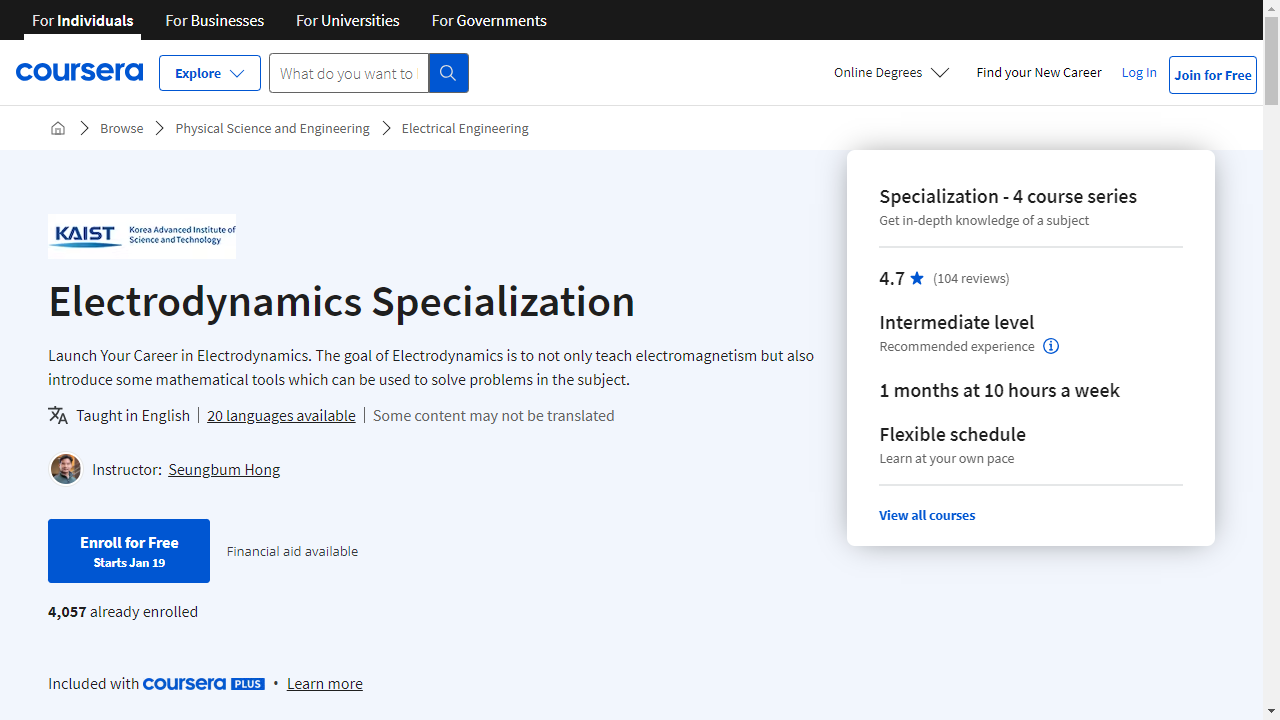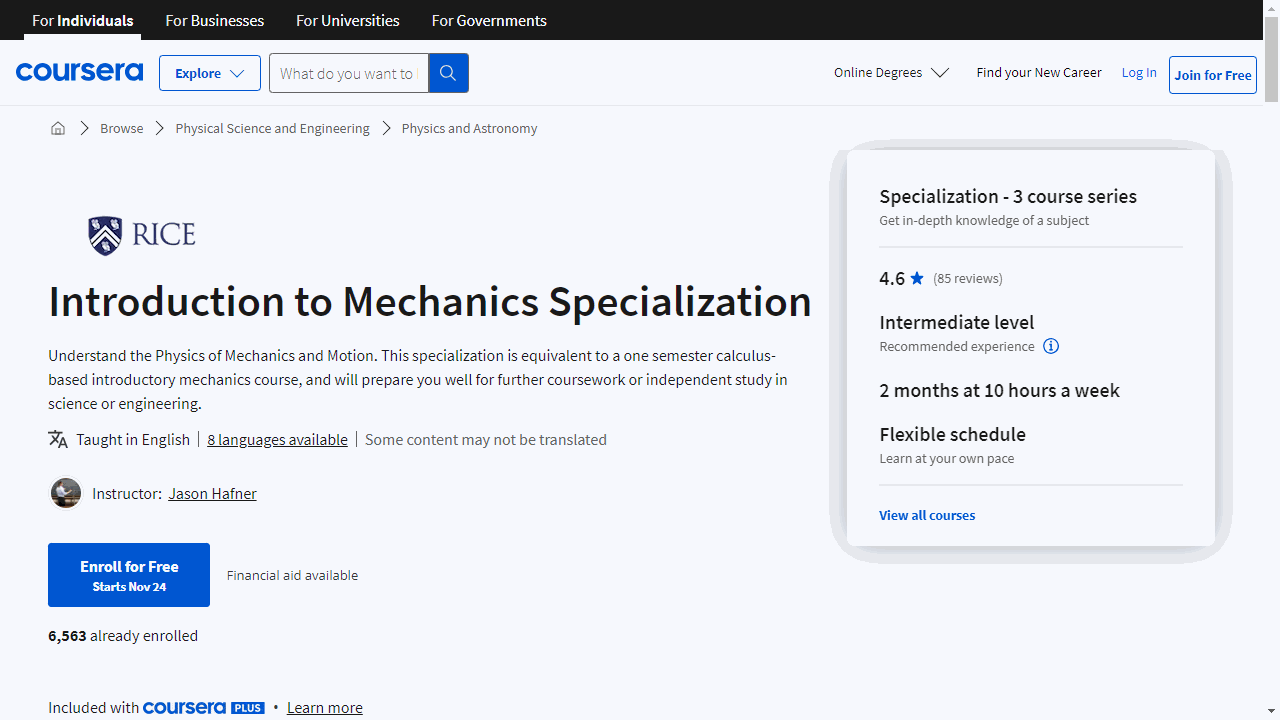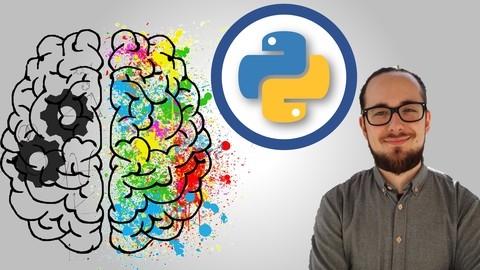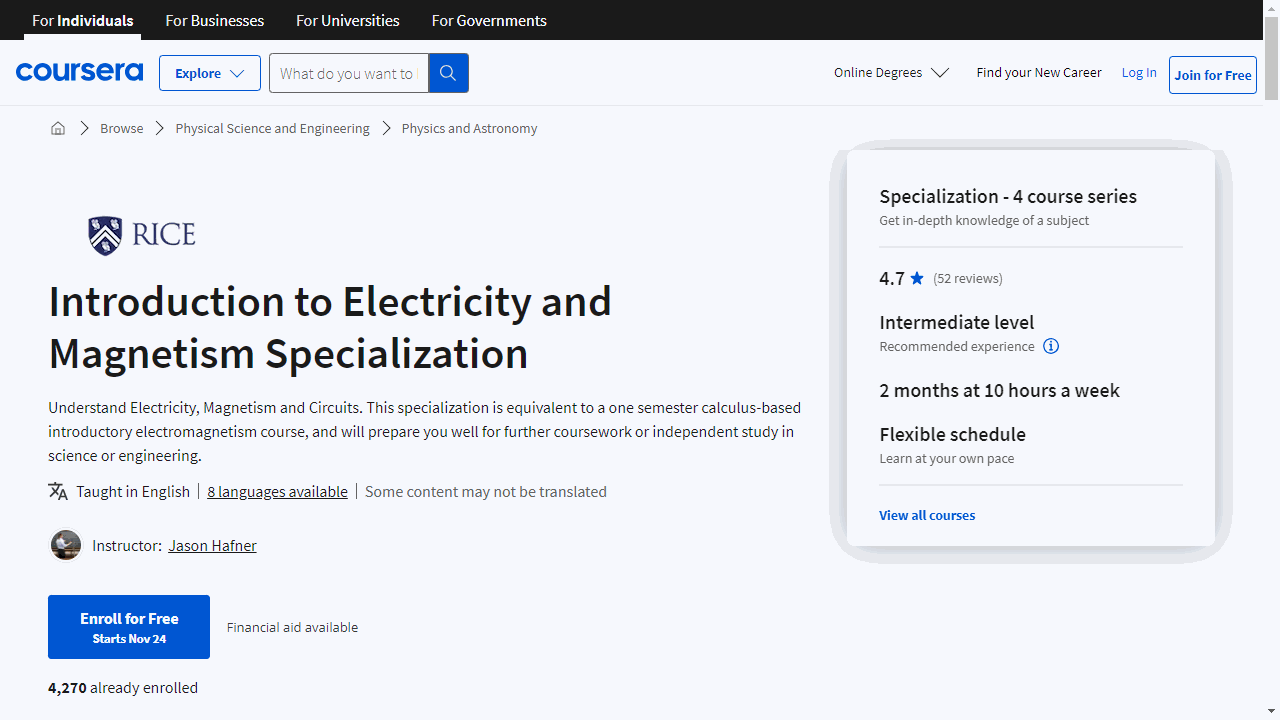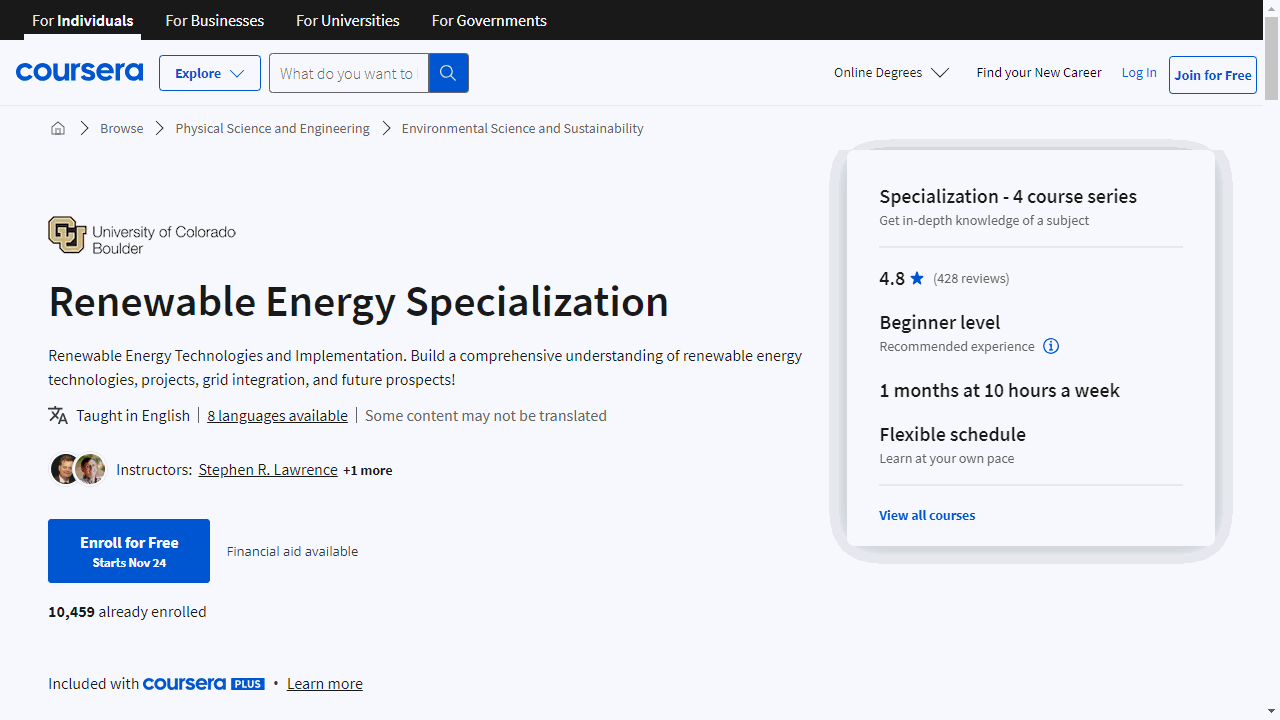Physics is a fundamental science that explores the nature of the universe, from the smallest subatomic particles to the vast expanse of galaxies.
It delves into the principles governing matter, energy, motion, and the forces that shape our world.
By studying physics, you can gain a deeper understanding of how the universe works, from the intricate workings of atoms to the grand dance of celestial bodies.
This knowledge can open doors to a wide range of careers in fields like engineering, research, technology, and education, as well as fostering critical thinking and problem-solving skills that are valuable in any profession.
Finding the right physics course that caters to your individual learning style and goals can be a daunting task.
With countless options available online and in traditional educational settings, it’s easy to feel overwhelmed by the sheer volume of choices.
You’re looking for a course that not only covers the essential concepts but also provides engaging instruction, practical applications, and perhaps even a glimpse into the cutting edge of research.
For the best physics course overall, we highly recommend the Electrodynamics Specialization offered on Coursera.
This specialization provides a comprehensive and in-depth exploration of electricity and magnetism, two fundamental forces that govern the behavior of the universe at both the macroscopic and microscopic levels.
The courses within the specialization cover a wide range of topics, from electrostatics and magnetostatics to Maxwell’s equations and their applications.
While the Electrodynamics Specialization is our top pick, there are many other excellent physics courses available that cater to specific interests and learning preferences.
Whether you’re fascinated by quantum mechanics, eager to explore the mysteries of astrophysics, or seeking a solid foundation in classical mechanics, there’s a course out there waiting to ignite your passion for physics.
Keep reading to discover more recommendations tailored to your specific needs and embark on a journey of scientific discovery.
Electrodynamics Specialization
Provider: Coursera
This Electrodynamics Specialization on Coursera is a great starting point if you want to learn about electricity and magnetism.
You’ll start with the basics of electrostatics, learning about how charges interact when they aren’t moving.
This includes concepts like intermolecular forces and how capacitors store energy.
Next, you’ll explore how to calculate electric fields.
You’ll learn about polarization and dielectrics and how electric fields create dipoles.
This will give you a deeper understanding of how materials respond to electric fields.
The specialization then delves into magnetostatics—the study of stationary magnetic fields.
You’ll explore the relationship between magnetism and electricity, learn about electromotive force, and see how it’s used in building devices.
You’ll even touch on the basics of quantum mechanics and how it relates to magnetic forces.
Finally, you’ll dive deep into Maxwell’s equations, the fundamental laws of electromagnetism.
You’ll use them to analyze complex systems and learn how they relate to electric and magnetic potentials.
The course will introduce you to AC circuits and how to work with them.
You’ll even learn how to add relativistic corrections to your calculations!
Quantum Physics: an overview of a weird world (Basics)
Provider: Udemy
You want to learn the basic rules governing the universe at the subatomic level?
This Udemy course on quantum physics will take you on a journey from the early days of physics to the modern quantum revolution.
Starting with the classic double-slit experiment of Thomas Young, you will see how light behaves like a wave and learn how this experiment forms the foundation for quantum physics.
You will study experiments such as the photoelectric effect and the Franck-Hertz experiment, leading to the discovery of the photon and Bohr’s model of the atom.
Deeper into the course, you will explore groundbreaking ideas that underpin our modern understanding of the quantum world.
You’ll learn about the wave-particle duality, where particles like electrons can behave as both waves and particles, and Heisenberg’s uncertainty principle, which states that you can’t know both the position and momentum of a particle with perfect accuracy.
Concepts such as quantum entanglement, virtual particles, vacuum zero-point energy, and the Casimir effect are presented in a clear and understandable way.
The course doesn’t shy away from the more mind-boggling aspects of quantum mechanics.
You’ll grapple with the EPR paradox, a thought experiment that challenges our understanding of reality, and explore the strange world of quantum entanglement.
The course will introduce you to Schrödinger’s cat, perhaps the most famous thought experiment in physics, and explore the profound implications it has for our understanding of the quantum realm.
Don’t worry if you are not a physics expert — this course is designed for beginners.
Prepare to have your preconceived notions challenged as you discover the fascinating and often counterintuitive world of quantum physics.
Introduction to Mechanics Specialization
Provider: Coursera
The “Introduction to Mechanics Specialization” is a great place to build a strong understanding of physics.
You start by learning about kinematics, which is how objects move, and Newton’s Laws, which explain how forces make objects move.
You will analyze motion problems using algebra, calculus, and vectors, just like in a college physics class.
You will also study energy and momentum, learning how energy changes forms (like from potential to kinetic) and how momentum is conserved in collisions.
You will explore real-world situations, like calculating the energy of a moving car or the forces on a bridge, using graphical analysis and other problem-solving techniques.
This practical approach makes physics engaging and helps you see how the concepts apply to real life.
You even learn about statics and elasticity, which deal with forces in balance and how materials change shape under pressure.
The specialization finishes with a deep dive into rotational motion, angular momentum, and gravitation.
You will learn how objects spin and how gravity affects everything in the universe, from planets to stars.
With video lectures, a free textbook, quizzes, and challenging homework problems, you will be well-prepared for more advanced physics courses or even a career in a field like mechanical engineering.
Computational Physics: Scientific Programming with Python
Provider: Udemy
This course will teach you how to use Python to solve real-world physics problems.
You’ll begin by installing Python using Anaconda, a free tool, and working with Jupyter notebooks, an interactive coding environment.
You’ll quickly learn the basics of Python, including data types, arrays, and functions, and apply them to physics problems.
The course then explores fundamental computational physics concepts such as series expansion, interpolation, and data fitting.
You’ll learn how to use Python libraries like NumPy and SciPy for numerical calculations, and matplotlib for visualizing data.
You’ll gain a strong understanding of numerical methods for derivatives, integrals, and differential equations, applying them to simulate physical phenomena like a rolling ball, chaotic Lorenz systems, and heat flow.
You will delve into advanced topics like Monte Carlo algorithms, eigenvalue problems, and the Schrödinger equation.
You’ll tackle projects like calculating Pi using Monte Carlo simulations, simulating a magnet, and exploring the electronic properties of graphene.
You’ll even get to learn about the Quantum Hall effect!
This course provides a comprehensive and practical introduction to the world of computational physics using Python.
Introduction to Electricity and Magnetism Specialization
Provider: Coursera
You’ll start with the basics of electricity and magnetism, exploring concepts like electric charges, forces, and fields.
You’ll discover how these elements interact and the principles behind the forces we encounter daily.
The course then guides you through electric potential, capacitance, and the flow of electricity in circuits.
You’ll learn about resistors, their role in regulating electricity, and how they function within DC circuits.
You will solve problems using various methods, including graphical analysis, algebra, and calculus, solidifying your understanding.
Next, you’ll dive into the captivating world of magnetic fields, uncovering their connection to electric currents and Faraday’s Law of Induction.
You’ll grasp how fluctuating magnetic fields produce electric currents, a fundamental principle driving numerous modern technologies.
You’ll analyze magnetic fields and understand their effects on electrical circuits.
Finally, you’ll explore alternating current (AC) circuits and the intricacies of impedance.
You’ll learn to decipher AC circuits and master the concept of impedance, a measure of the resistance to the flow of alternating current.
You’ll then tackle Maxwell’s Equations, unifying the principles of electricity and magnetism into a single, comprehensive framework.
Throughout this specialization, you’ll develop strong problem-solving skills and gain a deep understanding of the subject, comparable to a university-level physics course.
Quantum Physics from Beginner to Expert (Quantum mechanics)
Provider: Udemy
This course begins by building a solid foundation in the essentials of quantum physics.
You will discover why classical physics isn’t enough to explain the world around us and delve into the intriguing concept of particle-wave duality.
This understanding will lead you to Heisenberg’s uncertainty principle and the famous thought experiment of Schrödinger’s cat, highlighting the unusual nature of the quantum realm.
The journey continues with the Schrödinger equation, the bedrock of quantum mechanics.
You will gain a deep understanding of its significance, learn to interpret wave functions, grasp the concept of operators, and calculate expectation values.
As you progress, you’ll solve your first quantum physics problem, solidifying your understanding of these fundamental concepts.
The course then presents an optional yet valuable detour into the world of mathematics, covering complex numbers, the nabla operator, and various coordinate systems.
With the mathematical tools in hand, you will dive into solving practical problems using the stationary Schrödinger equation for scenarios with unchanging potentials.
You’ll tackle classic examples like the particle in a box and explore intriguing phenomena like the tunnel effect, impossible in classical physics.
If you are inclined towards computational physics, an optional section introduces you to Python programming.
You will learn to set up your environment, utilize Jupyter notebooks, and solve quantum physics problems numerically, further solidifying your understanding.
The course then guides you deeper into the intricacies of quantum mechanics, delving into the language and mathematics behind the theory.
You will become familiar with Dirac notation (Bra-Ket notation), Hermitian operators, and the concept of commutators.
This exploration will deepen your understanding of Heisenberg’s uncertainty principle and prepare you for more complex topics.
You will explore the harmonic oscillator, a fundamental model in quantum mechanics, through the lens of second quantization and learn about the role of ladder operators in determining energy levels.
Finally, you will apply your knowledge to real-world systems, such as the hydrogen atom.
You’ll learn to separate and solve its Schrödinger equation, gaining insights into its energy levels and delving into the fascinating realm of quantum chemistry.
The course then introduces you to the mind-bending world of relativistic quantum theory, where you’ll encounter the Klein-Gordon, Pauli, and Dirac equations.
You will explore the concept of electron spin and delve into the fine structure of the hydrogen atom.
The course concludes with a glimpse into the exciting world of quantum computing.
You’ll learn about qubits, single and double-bit operations, and the fascinating phenomena of entanglement and quantum teleportation.
Renewable Energy Specialization
Provider: Coursera
This Coursera specialization on Renewable Energy dives deep into the physics behind clean energy technologies.
You’ll learn how wind turbines harness the power of wind, exploring the design of turbine blades and the physics of energy conversion.
The courses also break down solar energy, explaining how solar panels use semiconductor physics to transform sunlight into electricity.
This specialization goes beyond individual technologies, showing you how renewable energy sources integrate into existing electrical grids.
You learn about the challenges of balancing supply and demand, along with the physics of energy storage solutions like pumped hydro, batteries, and hydrogen.
These courses equip you with a deep understanding of how renewable energy interacts with the established energy infrastructure.
You also gain practical skills in this specialization.
The courses guide you through planning and executing renewable energy projects, from conducting feasibility studies to managing construction and operation.
You learn how to evaluate different renewable technologies, considering factors like efficiency, cost, and environmental impact.
Finally, this specialization explores the future of renewable energy technologies like floating wind farms and building-integrated solar panels.
You discover how innovations in energy storage, electric vehicles, and smart grids will shape the future energy landscape, applying your knowledge of physics to analyze these trends.
The Complete AP and College Physics Course
Provider: Udemy
This Udemy course guides you from the fundamentals of physics to more challenging concepts.
You begin with a trigonometry review to understand the language of physics and then delve into motion, exploring velocity, acceleration, and free fall.
You even learn about projectile motion.
The course then introduces forces and Newton’s Laws, the cornerstone of classical mechanics.
You study friction, weight, normal force, and how objects move in circular paths.
You learn about work, energy, momentum, collisions, and rotational motion.
The principle of conservation of energy is a key takeaway.
A solid understanding of gravitation comes next, including Kepler’s Laws and Newton’s Law of Universal Gravitation.
You also explore satellites and the escape velocity needed to overcome Earth’s gravitational pull.
The course then covers fluid mechanics, focusing on pressure, buoyancy, and Bernoulli’s Principle, explaining how airplanes achieve flight.
Next, you discover heat and temperature, including thermal expansion, heat transfer, and the behavior of gases.
The world of thermodynamics comes alive as you learn the laws governing energy transfer and the workings of heat engines.
You then delve into oscillations and waves, covering simple harmonic motion, sound waves, and the Doppler Effect.
The course explores the behavior of light as a wave, including interference, diffraction, and polarization.
Finally, you are introduced to the fascinating realm of special relativity, discovering Einstein’s postulates, time dilation, and length contraction.
The course concludes with an introduction to quantum mechanics, the wave-particle duality of light, Heisenberg’s Uncertainty Principle, and the groundbreaking Schrӧdinger Equation.
You also explore the structure of the atom and delve into nuclear physics, including radioactive decay, fission, and fusion.
Also check our posts on:
